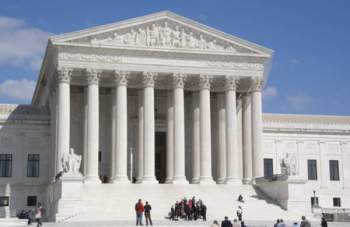
Brown v. Mississippi

The Background of Brown v. Mississippi:
Brown v. Mississippi was a landmark decision handed-down by the United States Supreme Court. In Brown v. Mississippi, the United States Supreme Court ruled that a defendant’s confessions, when extracted by law enforcement agents, cannot be entered as evidence for it directly violates the Due Process Clause.
Raymond Stuart, on March 30, 1934, was murdered; Arthur Ellington, Henry Shields and Ed Brown (three black tenant farmers) were arrested for the murder of Stuart. During the trial, the prosecution’s primary evidence was the defendant’s confession to the local Mississippi law enforcement agents. During this trial; however, witnesses admitted that the defendant’s confessed only after being subjected to savage beatings and whippings by the officers. Although torture was used by the officers to extract confessions from the defending parties, the confessions were nevertheless admitted into evidence—the confessions were used in the subsequent one-day trial.
Through the confessions, the defendants were ultimately convicted by the jury and sentenced to death; the convictions were later affirmed by the Mississippi Supreme Court.
In a unanimous decision in Brown v. Mississippi, the United States Supreme Court reversed the convictions for the defendants. It was decided in Brown v. Mississippi, that a defendant’s confessions cannot be entered as evidence if it is extracted by a law enforcement agent—this process of extraction violated the Due Process Clause of the Fourteenth Amendment.
The Fifth Amendment to the United States Constitution guarantees a defendant’s protection against self-incrimination. The Fourteenth Amendment’s Due Process clause was applied to this provision to be upheld by each individual state.
The Case Profile of Brown v. Mississippi:
The following is a case profile of the legal trial eponymously titled ‘Brown v. Mississippi’:
Date of the Trial: Brown v. Mississippi was argued on January 10, 1936
Legal Classification: Administrative Law; this legal field associated with events and circumstances in which the Federal Government of the United States engages its citizens, including the administration of government programs, the creation of agencies, and the establishment of a legal, regulatory federal standard
Accused Criminal Activity: The following criminal activity and charges were cited by the State of Mississippi against Brown within the appeal brought forth subsequent to the initial ruling:
Brown, along with two other men, was accused of murdering Raymond Stuart. The convictions were affirmed by the lower court systems because Brown, along with the other men, admitted to killing Brown after being tortured and beaten by police officers.
Date of the Delivery of the Verdict: Brown v. Mississippi was decided on February 17 1936
Legal Venue of Brown v. Mississippi: The United States Supreme Court
Judicial Officer Responsible for Ruling: Chief Justice Charles E. Hughes
Verdict Delivered: The United States Supreme Court ruled in favor of Brown by stating that a defendant’s confession, when extracted through police violence, cannot be entered as violence for the process to acquire such an admission, violated the due process clause of the Fourteenth Amendment.
NEXT: Bush v. Gore





















